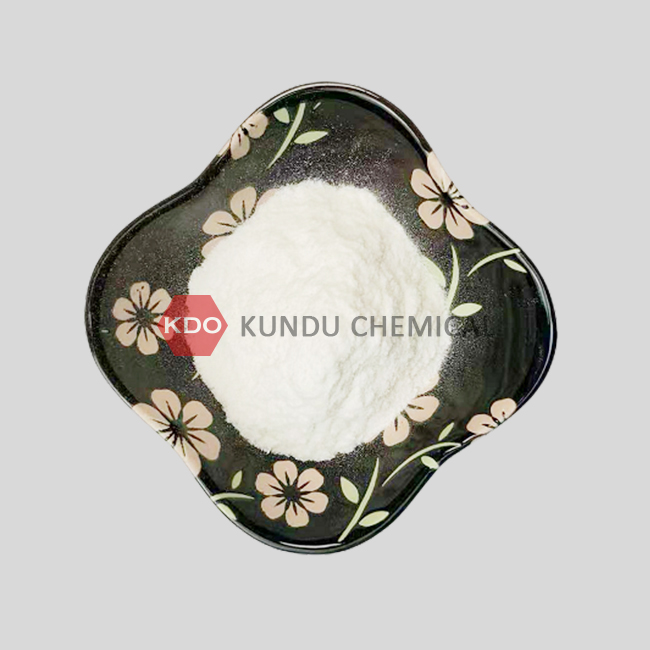- Time:2023/7/20Posted:SHANDONG KUNDU CHEMICAL CO.,LTD.
Cellulose ethers are a group of natural or modified polymers derived from cellulose, the most abundant organic compound on Earth. Cellulose is a complex carbohydrate found in the cell walls of plants, and cellulose ethers are obtained by chemically modifying cellulose to enhance its properties for various industrial applications. These versatile compounds offer a wide range of properties, making them valuable in industries such as pharmaceuticals, food, cosmetics, construction, and more. Here are some of the key properties of cellulose ethers:

1. Water Solubility:
One of the most significant properties of cellulose ethers is their ability to dissolve in water. This property allows them to form stable and clear solutions, making them suitable for a variety of applications, such as thickeners, stabilizers, and binders in food, pharmaceuticals, and personal care products.
2. Film-Forming Capability:
Cellulose ethers can form transparent and flexible films when dried from their aqueous solutions. These films have excellent barrier properties against gases and can serve as coatings for various substrates in the packaging industry and other applications.
3. Thickening and Stabilization:
Cellulose ethers act as effective thickeners in liquid systems, increasing viscosity and providing stability. They prevent settling of particles and improve the texture and mouthfeel in food products, paints, adhesives, and more.
4. Pseudoplastic Behavior:
Cellulose ethers exhibit pseudoplastic or shear-thinning behavior, meaning that their viscosity decreases with increasing shear rate. This property is particularly advantageous in applications such as paint formulations, where they become less viscous during application but regain their original viscosity after application.
5. Hydrophilic Nature:
Cellulose ethers have a high affinity for water due to their hydrophilic nature. This property makes them useful in controlling water content in formulations and improving moisture retention in various products.
6. Film Strength and Flexibility:
Cellulose ethers produce films with good mechanical properties, such as tensile strength and flexibility. These films find use in applications where a combination of strength and flexibility is required, such as in food packaging and pharmaceutical coatings.
7. Thermal Stability:
Cellulose ethers demonstrate good thermal stability, which makes them suitable for applications requiring high-temperature processing or exposure, such as in construction materials like mortars, gypsum-based products, and adhesives.
8. Chemical Stability:
Cellulose ether is relatively inert to many chemicals, providing stability in a variety of formulations. This property is valuable in the pharmaceutical industry, where they are used as excipients in drug formulations.
9. Suspending and Emulsifying Agent:
Cellulose ethers can act as suspending agents, preventing solid particles from settling in liquid formulations. They are also used as emulsifiers in some applications, helping to stabilize oil-in-water emulsions.
10. Bioavailability Enhancer:
In pharmaceutical applications, certain cellulose ethers, such as hydroxypropyl methylcellulose (HPMC), can act as bioavailability enhancers. They can improve the solubility and dissolution rate of poorly water-soluble drugs, thereby increasing their absorption in the body.
11. Biodegradability:
Cellulose ethers, being derived from natural cellulose, are generally biodegradable. This eco-friendly property is advantageous in applications where biodegradability is a critical consideration, such as in personal care and agricultural products.
12. Compatibility with Other Ingredients:
Cellulose ethers are compatible with a wide range of other ingredients, including other polymers, fillers, and additives. This makes them highly versatile and allows for their use in various formulations.
13. pH Stability:
Many cellulose ethers have good pH stability, allowing them to retain their properties over a wide pH range. This makes them suitable for use in both acidic and alkaline formulations.
Conclusion
In summary, cellulose ethers offer a unique combination of properties, including water solubility, film-forming capability, thickening and stabilization, pseudoplastic behavior, hydrophilicity, film strength, thermal and chemical stability, suspending and emulsifying properties, bioavailability enhancement, biodegradability, compatibility with other ingredients, and pH stability. These properties contribute to the wide range of applications in which cellulose ethers are utilized, making them valuable additives in various industries. Additionally, their natural origin and biodegradability align with the increasing demand for sustainable and eco-friendly materials.
If you want to know more information about cellulose ethers, please contact us. We will provide professional answers.





